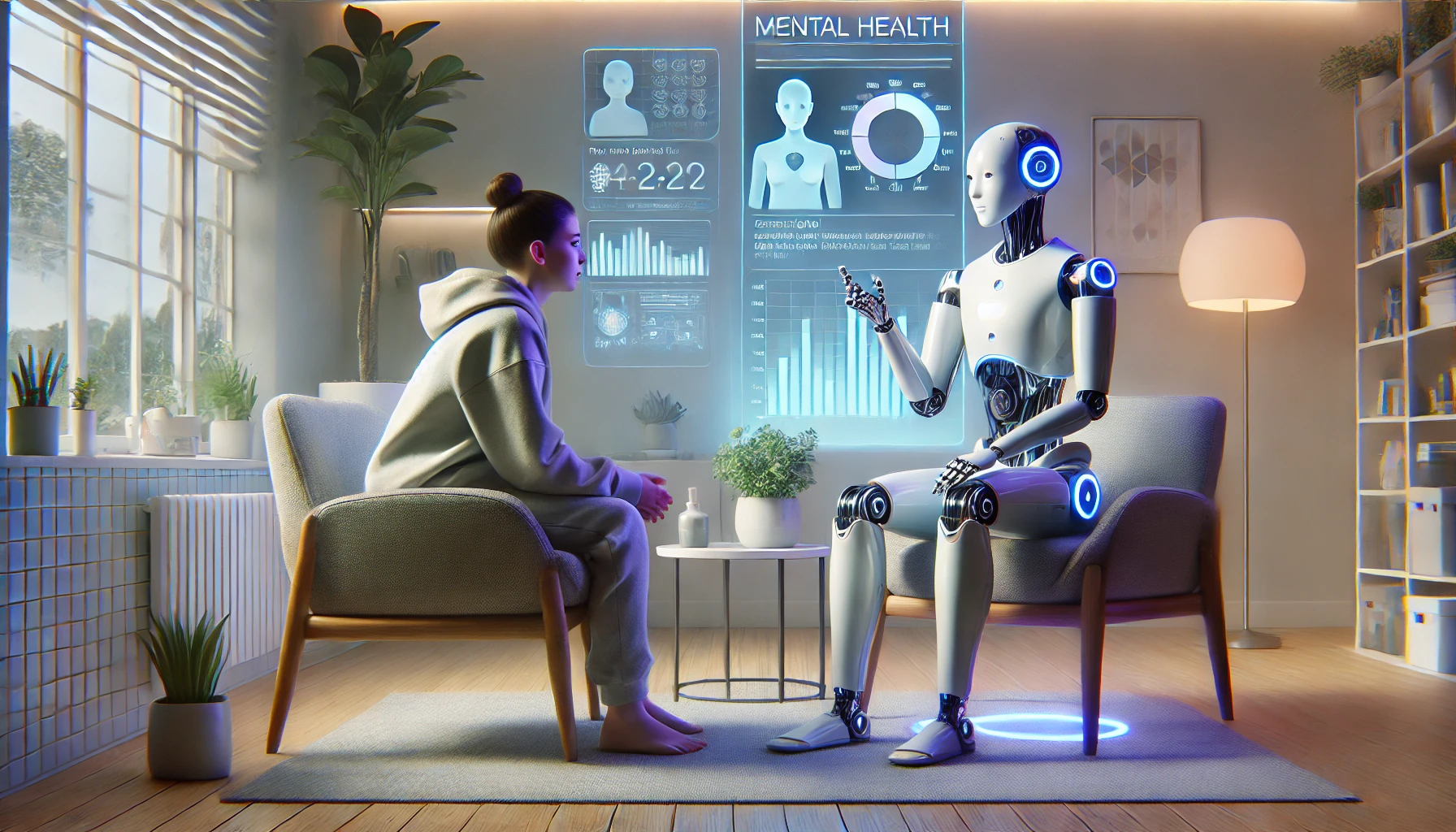Robo-Therapists: Could AI and Robotics Be the Future of Mental Health?

A Glimpse into the Future of Therapy
Imagine this: You walk into a therapy room, expecting a comforting conversation with a professional who understands your struggles. Instead, a sleek, socially adept robot sits across from you, nodding with empathy (or at least simulating it). Welcome to the future of mental health therapy, where AI and robotics are stepping in to support – or possibly replace – traditional therapists. While it might sound like a scene from a sci-fi movie, experimental projects using social robots in therapy are already underway.
Social Robots: Your New Therapist?
Social robots, like Nao and Pepper, are already making waves in therapeutic settings. These robots are designed to detect human emotions, offer comforting words, and guide people through therapeutic exercises. In Japan, for instance, robots have been used in elder care for years, providing emotional support and companionship to seniors. Similar initiatives are popping up globally, with robots engaging in conversations and even suggesting mindfulness techniques. But here’s the million-dollar question: Can these robo-therapists truly replace human touch and empathy? Or are we just scratching the surface of what they can offer?
The Ups and Downs of Robo-Therapy
Let’s be real for a second: robots aren’t exactly known for their stellar emotional intelligence. Sure, they can be programmed to recognize key emotional cues, but they lack the nuance of human therapists who have years of experience and training. On the plus side, robots don’t get tired, don’t judge, and definitely won’t take offense if you miss an appointment. Plus, they’re available 24/7 – no more waiting for that 4 PM session! On the flip side, the lack of real emotional understanding could be a significant barrier in more complex therapy cases.
Ethical Concerns: A Robo-Dilemma
One of the biggest concerns about bringing robots into mental health therapy is the ethical dilemma. Can a machine, programmed with algorithms and pre-set responses, be trusted with something as delicate as mental health? Critics argue that humans need more than just programmed empathy – they need connection, a sense of being truly understood, and that’s something robots can’t offer (yet). Moreover, privacy concerns arise when personal data is handled by machines, especially in such vulnerable situations. Who has access to your deepest fears and insecurities when they’re processed by AI?
Experimental Projects Leading the Way
Across the globe, various experimental projects are testing the potential of AI and robots in therapy. For example, MIT’s Media Lab has developed a social robot named Jibo, which can engage in light therapeutic tasks, like guiding mindfulness exercises. In another project, Woebot, an AI-driven chatbot, has been used to offer cognitive behavioral therapy (CBT) to users. These projects are paving the way for more research into how effective AI and robots can be in mental health support. But so far, the results have been mixed, with some users praising the consistency of AI support and others feeling it lacks the depth of human interaction.
Can Robots Fill the Gap in Mental Health Care?
The demand for mental health services is skyrocketing, and there simply aren’t enough therapists to meet the need. Enter robots, ready to take on the role of a therapist’s assistant or even a stand-in for more basic forms of therapy. AI could help lighten the load, offering preliminary support to patients before they reach a human professional. But the question remains: how far can robots go in this field? While they may be excellent at routine tasks or offering immediate support in a pinch, it’s unlikely they’ll replace human therapists completely. But could they help bridge the gap in a world that’s increasingly in need of mental health care?
Conclusion: Therapy Bots – Helpful or Hype?
The future of mental health care might just involve a lot more robotics than we imagined. While robots and AI are not quite ready to replace human therapists, they are showing promise as a supplement to traditional care. From offering round-the-clock support to providing a non-judgmental ear, robots have potential in mental health therapy. However, ethical concerns, emotional depth, and practical challenges remain significant hurdles. So, what do you think? Could you imagine yourself talking through your problems with a robot, or would you rather keep it old-school with a human therapist?



